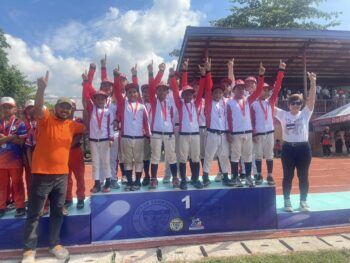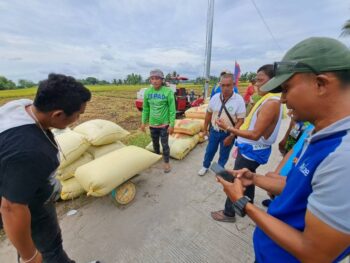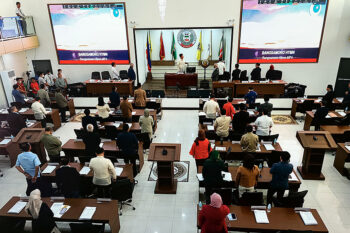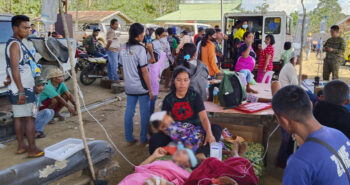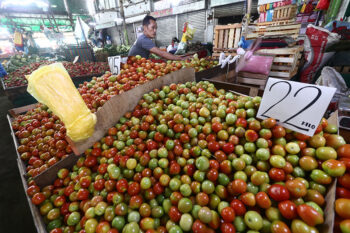
DAVAO CITY (MindaNews / 4 October) — Thirty-four years ago, the Catholic Church in the Philippines began celebrating the Indigenous Peoples (IP) Sunday. In 1978 – when IPs were referred to as Tribal Filipinos – the Bishops, upon the recommendation of church-people engaged in responding to their needs, passed a resolution recommending that all parishes across the country find ways to hold such a celebration.
This year, this celebration takes on additional meaning considering that the Church is in the thick of celebrating the 500th year of the arrival of Christianity to our islands. In Cebu in 1521 – following the arrival of Magellan and those in his expedition – the first baptisms to ever take place in our islands took place involving Rajah Humabon, his wife Juana and his followers. During that epoch, all inhabitants of the islands – including the Sugboanons – were all indigenous. So we can conclude that the first converts to Christianity in the Philippines were indigenous.
Magellan’s tragic presence in the central islands was put a short prelude to the establishment of the Spanish colony in Asia. The formal Spanish empire was formally established in our islands only with the coming of Miguel Lopez de Legazpi arriving in Cebu on August 25, 1565. With the arrival of the first five religious congregations in the country (Augustinians, Franciscans, Dominicans, Jesuits and the Recollects), the friars spread across the islands and within 330 years of the colonial rule established hundreds of parishes. In the process Catholicism as an organized religion was put in place across most of the areas of the islands, except in parts of Mindanao that had been Islamized even long before the arrival of Christianity and the upland territories of those holding on to their indigenous way of life and belief system.
Today close to 90% of the 110 million Filipinos are considered Catholics. In the whole of Asia, only the Philippines and East Timor can claim that the majority of their population are Catholics. Allegedly, the Philippines is third in the list of countries with the largest number of Catholics. One has to nuanced such statistics by considering there are different categories among Catholics themselves: the devout and practicing ones on one hand and those who are only Catholics in name. In the Acts and Decrees of the Plenary Council of the Philippines (PCP) II, it is said that the majority of Catholics in the country are “un-churched and un-evangelized.”
This is a good year to reflect on where the Church is in regard to how it operates in a country characterized by the presence of various faith traditions (Catholicism, Protestantism, Islam, the Indigenous belief system and others). This is especially true for the local church in Mindanao-Sulu. The Second Vatican Council in the 1960s already prescribed a Christian faith that is in dialogue with other faith traditions. To her credit, there have been attempts on the part of church dioceses, parishes, congregations, schools and other institutions to be engaged in dialogue with Muslims, IPs, Buddhists and others. But there is still so much that needs to be done.
On September 26, 2021 Pope Francis once again made a statement that further cements his reputation as a Pope unafraid to speak up to challenge his flock to embrace a Christianity so badly needed in a fractured world today. For, indeed, we are a world divided according to our specific loyalties determined by our classes, races, genders, ethnicities, cultural and religious traditions. He was quoted as saying that “It is a sin to use Christianity to judge and exclude.”
In his statement, which he addressed to the pilgrims gathered in St. Peter’s Square on that day, the Pope said: “Christians must be vigilant and avoid the temptation to think better of others, an attitude that risks making the church a place of “separation and not community… Let us ask for mercy to overcome the temptation to judge and categorize” … and that Christians must be vigilant and avoid the temptation to think for themselves better than others.” Such a statement provides us a framework for looking into how we have dealt with IPs through the centuries.
Imagine if there was a Pope Francis in Rome when Magellan set forth towards the Moluccas as well as when Legazpi established the Spanish colony in our islands. Imagine if the friars then had heard such exhortation from their beloved Pope in Rome and followed his admonitions? The whole colonization-evangelization agenda would have taken a very different track. Our ancestors’ indigenous belief system would have been respected rather than abhorred and eventually crushed. The Muslims in the south would not have been treated as enemies. But that would be wishful thinking. What matters now is what can we do to make sure the words of Pope Francis are fully respected by church people themselves, let alone governments that are supposedly constituted mainly by Catholic laypeople.
A number of events taking place in other countries have also highlighted the issues that continue to be concerns for indigenous communities. In a landmark decision made by the Australian Federal Court last September 27, the State returned 53,000 square miles of land to the Martu people, one of the aborigines of Australia. This is the largest land concession to Australian Aborigines since the government began settling indigenous land claims 10 years ago, following a court ruling that rejected the notion that Australia was uninhabited before the arrival of European colonizers in 1788. With this decision, the State formally recognized the Martu as the traditional owners/inhabitants of the land. It was in the 1950s when the remaining Martu were removed from this region by the British government to clear the way for testing of international ballistic missiles.
On the other side of the globe, the Canadian Conference of Catholic Bishops last September 24 – for the first time after public pressure built up on this issue – officially apologized for their role in helping to promote the residential school system. This system – which forcibly separated indigenous children from their families and subjected them to malnourishment as well as physical and sexual abuse – started in 1831 and which persisted up to 1996. It was the country’s Truth and Reconciliation Commission which brought this issue to the public attention in 2015, referring to this as “cultural genocide.” In their statement, the organization expressed “profound remorse” and apologized unequivocally along with all Catholic entities that were directly involved in the operation of the schools.
This kind of apology echoes what Pope St. John Paul II did as we began to welcome the new millennium in early 2000, when he was quoted as saying sorry for the sins of the Church. His sweeping apology for attacks on Jews, women and minorities was his most audacious initiatives for the twilight of his papacy. Inside the St. Peter’s Basilica in Rome, he led Catholicism into the “unchartered territory by seeking forgiveness for sins committed against Jews, heretics, women, Gypsies and native peoples.” He further said: “We forgive and we ask forgiveness. We are asking pardon for the divisions among Christians, for the use of violence that some have committed in the service of truth, and for attitudes of mistrust and hostility.”
There were voices that arose in the years approaching 2021 that as part of the 500th year commemoration, we as Church find a way to express our misgivings for the transgressions committed against our indigenous ancestors. The suggestion may or may not have reached the CBCP assembly, but there was an attempt to ask them to discuss this possibility. But nothing came out of this. The only church institution that listened to such a suggestion was the Episcopal Commission on Indigenous People. In order to concretize this suggestion, they were to schedule a series of dialogue with balians/balyans/babaylans/beliyans/walian/mumbakis (and other local equivalents of shamans) for a dialogue that could end with a reconciliation ritual.
The first schedule took off and was held in Butuan City where more than 30 Higaonon baylans meet with eight bishops and a hundred priests, religious and laypeople. They listened to the lamentations of the baylans and the bishops responded with signs of goodwill. The three-day affair ended with a ritual of reconciliation. As this dialogue took place, news of the spread of COVID-19 virus in Wuhan and across parts of Asia was already being reported. With the onset and persistence of the pandemic, the dialogue sessions have been suspended.
Our hope is that – one day when the pandemic no longer restricts our movements and inter-actions – this process will resume, even as more among us in our Church will take heed of Pope Francis’ words. Happy IP Sunday one and all!
[MindaViews is the opinion section of MindaNews. Redemptorist Brother Karl Gaspar is a professor at St. Alphonsus Theological and Mission Institute (SATMI) in Davao City and until recently, a professor of Anthropology at the Ateneo de Davao University. Gaspar is author of several books, including “Manobo Dreams in Arakan: A People’s Struggle to Keep Their Homeland,” which won the National Book Award for social science category in 2012, “Desperately Seeking God’s Saving Action: Yolanda Survivors’ Hope Beyond Heartbreaking Lamentations,” and his latest, “Handumanan (Remembrance): Digging for the Indigenous Wellspring.”. He writes two columns for MindaNews, one in English (A Sojourner’s Views) and the other in Binisaya (Panaw-Lantaw). Gaspar is a Datu Bago 2018 awardee, the highest honor the Davao City government bestows on its constituents.]


